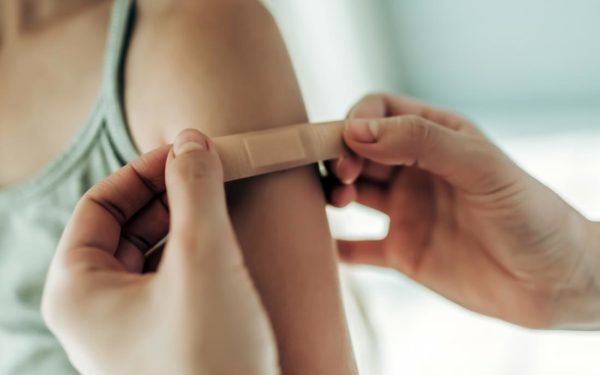COVID-19 vaccines and Hormones. Our POI specialist explains.

As we understand more about COVID-19, it is clear that it affects men and women differently. Women are significantly less likely to die from COVID-19 than men, but twice as likely as men to develop long covid. Estradiol has several potential beneficial effects on our immune system and there is also evidence that women taking HRT are less likely to die from COVID-19 than women not taking HRT.
The Oxford/AstraZeneca vaccine has been associated with an extremely rare blood clotting problem. This is a condition where people have developed blood clots in association with low levels of platelets. Although the risk is extremely low, it is more common in younger people and therefore current government guidance (as of 1st June 2021) for people under 40 without other health conditions, is to have another COVID-19 vaccine instead of the Oxford/AstraZeneca vaccine.
Oral, but not transdermal (patches, gels or sprays) HRT is associated with a small increased risk of blood clots. There is currently no evidence that HRT should increase your risk of the blood clotting problem associated with the Oxford/AstraZeneca vaccine and HRT is not seen as a contraindication to any of the current COVID-19 vaccines.
Although there have been reports of changes to women’s menstrual cycles after COVID-19 infection and vaccination, there is no evidence that the vaccination affects your chances of becoming pregnant, furthermore there is no need to avoid pregnancy after vaccination and you can have any of the COVID-19 vaccinations if you are breastfeeding. Current government guidance is for women who are pregnant to have the Pfizer/BioNTech or Moderna vaccine as there are more data to support their safety in pregnancy.
For further information see:
https://www.nhs.uk/conditions/coronavirus-covid-19/coronavirus-vaccination/coronavirus-vaccine/
https://www.britishfertilitysociety.org.uk/wp-content/uploads/2021/02/Covid19-Vaccines-FAQ-1_3.pdf
